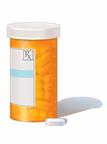Using Prescription Medicine Other Than How It's Prescribed: What to Know

When someone uses a prescription drug in a way that's different from how the health care provider prescribed it, this can cause problems.
Serious problems can happen when a person:
Takes more of the medicine than is prescribed.
Takes another person's medicine.
Takes the medicine for another reason.
Common types of medicines used in this way include:
Painkillers like opiates.
Depressants such as tranquilizers and anti-anxiety drugs.
Stimulants like amphetamines.
Using prescription drugs in a way not prescribed can lead to addiction and dangerous health problems, such as overdose or death.
How can using medicine in ways not prescribed affect me?
You may become addicted
Using prescription medicine the wrong way can lead to addiction. This means:
You feel like you need the medicine, even though it's causing problems in your life.
You need more and more of the medicine to get the same effect. This is called tolerance.
You feel sick when you don't take the medicine. This is called withdrawal.
If you get addicted, you might need treatment to help stop using the medicine.
You may put your health in danger
Using a medicine in ways not prescribed can:
Affect other medicines you take and cause dangerous side effects.
Make you more likely to use other drugs like tobacco, alcohol, or marijuana (cannabis).
Cause you to make poor decisions and do risky things. This can cause problems at home, school, work, or social settings.
Cause you to overdose, which can even lead to death.
Harm your overall health.
If you're pregnant, using medicines the wrong way can hurt both you and your baby. The baby can be born addicted and have withdrawal symptoms.
You may have symptoms and side effects
The effects of using prescription medicines the wrong way depend on the type of medicine.
For opiates, the effects might be:
Feeling confused.
Feeling like you may throw up.
Having itchy skin.
Having trouble pooping (constipation).
Having a flu-like sickness during withdrawal.
Having slow or weak breathing if an overdose occurs. This is called respiratory depression.
For depressants, the effects may include:
For stimulants, the effects may include:
Having trouble falling asleep or staying asleep (insomnia).
Not feeling hungry like normal.
Feeling worried or nervous.
Having false fears or beliefs (paranoia).
Feeling very tired and sad (depressed) during withdrawal.
- Having an overdose. This can cause:
What can I do to avoid using medicines the wrong way?
To avoid problems:
Do not take another person's medicines.
Do not take a prescription medicine without a prescription.
Do not take more of a medicine than was prescribed.
Do not take a medicine for a different reason or in a different way than it was prescribed, such as snorting, crushing, or injecting.
Do not take a medicine to feel high, relaxed, or to have more energy.
Do not take a stimulant to lose weight or to stay more alert.
To learn more, go to:
- Foundation for a Drug-Free World at drugfreeworld.org. Then:
Click "Search" and type "prescription drugs."
Find the link you need.
- Substance Abuse and Mental Health Services Administration at samhsa.gov. Then:
Click "Search" and type "substance use prevention."
Find the link you need.
Contact a health care provider if:
-
You're using a medicine and need help stopping.
-
You're pregnant and using a medicine in a way other than how it's prescribed.
-
You need more of a medicine to get the same effects.
-
You have withdrawal symptoms if you try to stop taking the medicine.
-
You're not able to stop using a medicine even though it's causing problems in your life.
This information is not intended to replace advice given to you by your health care provider. Make sure you discuss any questions you have with your health care provider.
